
Link & Add Guidable on LINE
Recruiter will contact you
Continue
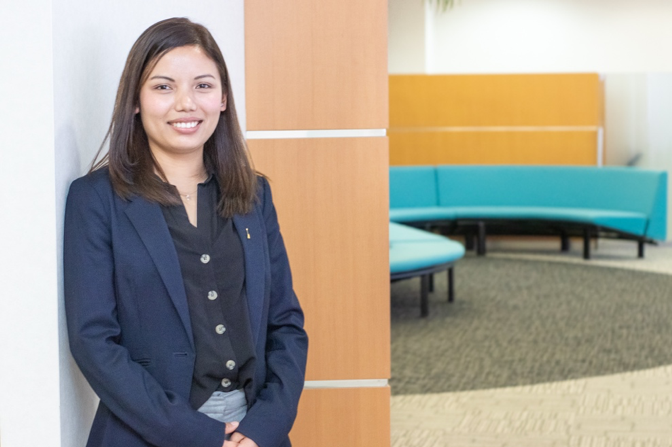
Doutor Coffee has employees and partners from a wide variety of nationalities. To create a better working environment, Doutor are developing “Global Meetings” where staff from different nationalities can come together to recruit, train, and collaborate. The current store managers, Shen from China and Lama from Nepal, are also participating in this project to create a system that allows international staff to play an active role.
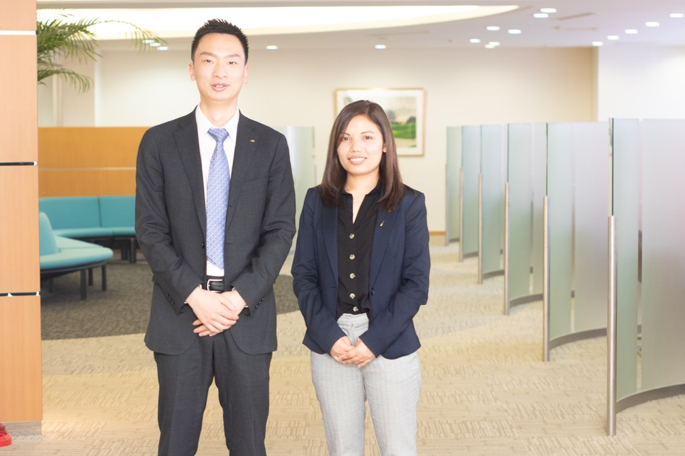
Behind every working person is a story, one that often only comes to light when they share it.
And when it comes to foreign staff who have deliberately chosen to live in Japan and work for a Japanese company, those stories are often even richer and more compelling.
Shen: “I came to Japan in 2003 with my family. I went through junior high, high school, university, and even started my first full-time job all in Japan. But at one point, I felt a strong desire to reconnect with my home country, China, so I returned and spent about five years working at a trading company and a financial institution.”
Shen Jihong, who shares this, chose Doutor Coffee as the place to restart his career in Japan.
Shen: “Simply put, I love coffee. Among Japanese brands, Doutor is especially well-known and respected. When I joined the company, I had hopes of one day helping to expand it into China.”
Meanwhile, Laxmi Devi Lama, who is from Nepal, developed an interest in Japan as a fellow Asian country because she wanted to explore the world beyond her homeland.
Lama: “Among Asian countries, Japan has a distinct and independent presence. I wanted to see for myself what made it so unique. I came to Japan at 19 as a language student, and at first, I was completely overwhelmed because the environment and values were so different from Nepal.
The biggest difference was the sense of time. In Japan, everything is expected to be perfect and efficient. Things move fast. In Nepal, time flows much more slowly.”
So why did she choose to work at Doutor?
It was because she found the way the staff worked to be truly inspiring.
Lama: “The employees looked so cool, and the stores were incredibly clean. That left a strong impression. Plus, Doutor is a brand born in Japan, and I wanted to take on a job that could only be done here.
Also, I lived in Ōkubo, an area known for its international community, so many of the customers and staff were foreigners too. At the Doutor Coffee Shop in Ōkubo, about 80% of the staff are non-Japanese. It felt completely natural to see foreign staff working there, so I didn’t feel intimidated about joining.”
Though Shen and Lama come from different countries, have different backgrounds, and different reasons for joining, they’re united by two things: their love of coffee and their passion for working at Doutor.
That said, living and working in Japan comes with its own set of challenges.
One of the biggest is learning to understand and embrace differences in culture and values.
It may sound simple, but actually confronting and overcoming those barriers is far from easy.
The journeys Shen and Lama have taken, along with the thoughts and feelings they’ve shared along the way, hold important insights into how Japan can better support and collaborate with international talent.
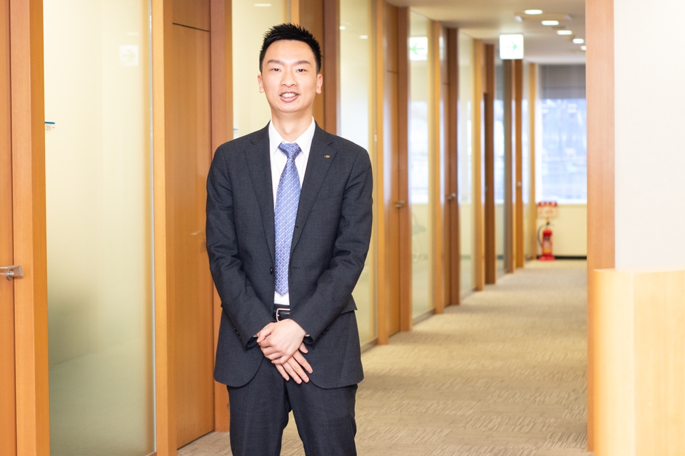
For example, staff clean the street in front of the store and exchange greetings with neighbors.
In Japan, this is not an uncommon sight.
Shen: “But I was really surprised. In China, working at a café means serving drinks and food, nothing more. Cleaning the store or restrooms is handled by a separate cleaning staff. When I first started working at Doutor, I was confused and thought, ‘Wait, both part-timers and full-time employees do this kind of work too?’”
Lama, on the other hand, noticed a cultural difference in the relationship between the seller (the store) and the buyer (the customer).
Lama: “In Nepal, it kind of feels like the seller holds a higher position. But in Japan, it’s the opposite. Fortunately, I haven’t had many experiences where customers scolded me, but there were times when I just couldn’t understand and thought, ‘Why do we as staff have to apologize here?’ It didn’t make sense to me.”
From big differences to subtle discomforts, the two of them have encountered more cultural contrasts than they can count.
Working in a foreign country means learning to adjust to that country’s customs and values.
These days, Lama smiles and says, “As long as I stay cheerful, things will be fine,” but she remembers how hard the adjustment was when she first joined the company as a new graduate.
Lama: “I couldn’t speak Japanese well, and communication with customers and coworkers didn’t go smoothly. I started to feel overwhelmed and decided to return home for a break.
Back in Nepal, where the pace of life is more relaxed, I was able to reconnect with myself and remember, ‘I’m Nepali.’
In Japan, working with Japanese colleagues and serving Japanese customers, I had somehow convinced myself I needed to act like a Japanese person. I didn’t even realize I was doing it.
When I went home, my father said, ‘You seem like a different person,’ and I realized how much I had been forcing myself to fit in.”
She didn’t need to mold herself into the Japanese way of being.
Because after all, she’s Nepali.
No matter where I work or who I work with, I want to be true to myself.”
Once she shifted her mindset that way, Lama says, things began to fall into place.
That doesn’t mean giving up on trying to understand or adapt.
Rather, it’s about holding on to the core of your identity, something deeper than nationality.
It’s by embracing your true self that new opportunities begin to open up.
Now, both Shen and Lama are part of a team at Doutor that is working to build a more supportive environment where even more foreign staff can thrive.
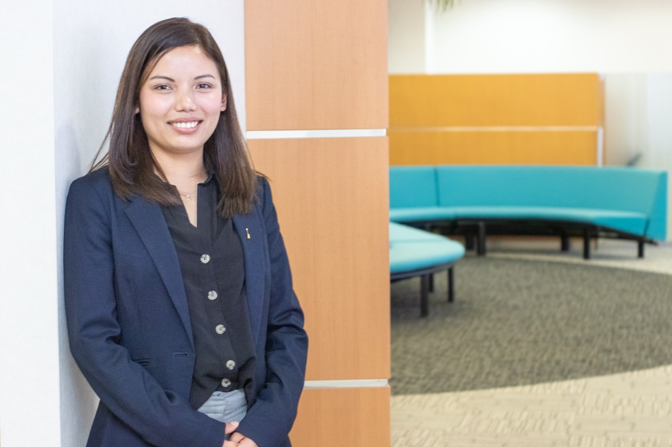
Shen’s first role as a store manager was at the same Doutor Coffee Ōkubo location where Lama works.
Shen: “Because of the store’s location, it was difficult to hire Japanese staff, so we had no choice but to bring in foreign team members. But this wasn’t unique to our store, every location struggles with labor shortages. From a company-wide and even society-wide perspective, the need to include more foreign staff is clear.
I felt that it would be great if Doutor as a whole could bring in more foreign employees. At the same time, I didn’t think we should be overly focused on nationality.
From a staff development standpoint, there's not a big difference between training Japanese and non-Japanese employees. My hope was to cultivate talent who could thrive at Doutor, regardless of nationality, and to build strong teams together.”
Shen’s vision aligned with the company’s direction, and in 2018, a formal project was launched involving other departments.
That initiative became the Global Meeting, bringing together Shen, Lama, members of the employee training division, and Japanese store managers from directly operated shops.
They initially worked with outside experts, but gradually developed an original, Doutor-style training program.
Shen: “The first thing we did was identify the barriers. We asked: What kinds of obstacles are there? How have foreign staff overcome them? And how have Japanese managers addressed these issues?
We shared insights and experiences from the field. We don’t have a fixed ‘final version’ of the program because we constantly update and adapt it based on feedback and changing needs.”
The guiding principle was not just about helping foreign staff adapt to Japanese culture and practices, it was equally about helping Japanese staff understand the cultural backgrounds and communication styles of their international colleagues.
Rather than forcing anyone to erase their identity, the goal was to foster respectful communication built on mutual understanding.
Even something as simple as a gesture can have completely different meanings across cultures.
Lama: “In Nepal, we nod our heads side to side to mean ‘yes.’ But in Japan, that can be interpreted as ‘no.’
Small differences like that can easily lead to misunderstandings. But once you realize, ‘Oh, it’s the opposite here!’ it opens the door to the next question: ‘So how do we work around that?’
Those little discoveries can actually spark better communication.”
To make this more actionable in the workplace, the Global Meeting team created reference materials outlining key cultural traits by country. So far, they’ve compiled guides for five countries most represented among staff: China, South Korea, Vietnam, Nepal, and Japan.
Shen: “Once we started using the materials, we actually discovered that Japanese managers were the ones experiencing more barriers than we’d expected.
If they can approach those challenges not as stressors, but as opportunities for learning and inspiration, then the potential for foreign staff to thrive will continue to grow.”
To break down walls, you first have to recognize them. That awareness, and the shared willingness to move forward, is perhaps the key to creating a vibrant workplace where both Japanese and international staff can succeed together.
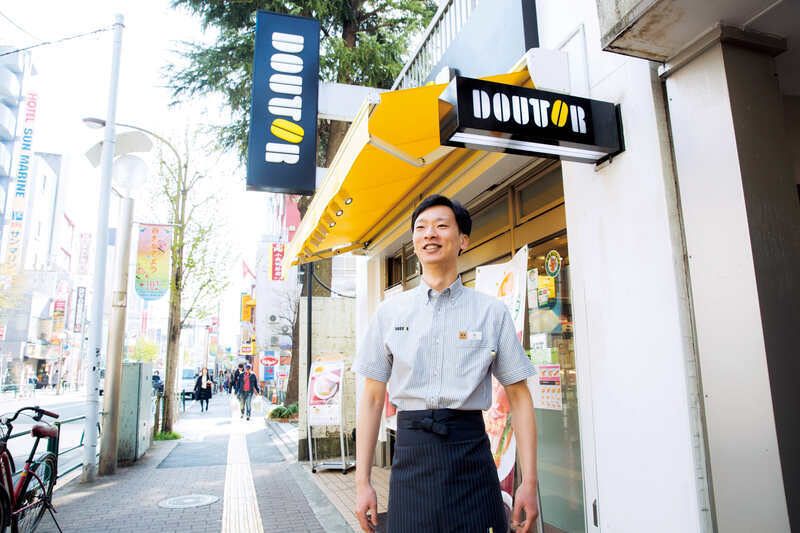
As foreign store managers directly involved in day-to-day operations, Shen and Lama have both played active roles in the Global Meeting initiative. Looking ahead, they say they want to continue expanding and improving the program.
Shen: “This project really reinforced for me the strength of Doutor’s system, where the stores, supervisors, and headquarters work together as one. I’m truly grateful for the opportunities I’ve been given, regardless of nationality.”
Even Japanese store managers often face challenges in their roles on the front lines of operations.
Both Shen and Lama say they’ve relied on conversations with other store managers, supervisors, and even headquarters staff to navigate those difficulties.
Lama: “When I’m struggling, I talk to colleagues from my training group. Just knowing I have people I can reach out to without hesitation gives me a real sense of security.”
Shen: “I once wanted to deepen my knowledge of coffee, so I asked for career advice. They arranged for me to speak directly with employees at our in-house roasting facility. That helped me visualize what kinds of new challenges I could pursue beyond store operations.”
Even if you’re the only store manager at your location, that doesn’t mean you’re on your own.
Both Shen and Lama emphasize the importance of reaching out to headquarters, other store managers, supervisors, and of course, their team members, working together and supporting each other.
Lama: “Responsibility is important, but there’s no benefit in pushing yourself too hard. Whether you’re a manager or a part-time partner, Japanese or non-Japanese, everyone has unique strengths. The ideal environment is one where we can recognize and bring out those strengths.”
They are not only thinking about themselves or their own stores—they’re also thinking about the bigger picture of Doutor Coffee as a whole.
Looking at their examples, it’s clear that nationality no longer needs to be seen as a barrier to success.
Today, both of them have stepped into training roles as well.
Shen: “At our company, we have a buddy system that pairs senior store managers with new ones. I once leaned heavily on my own buddy for support and guidance. Now I’m the one others come to for advice.
I also help train new employees, whether they’re recent graduates or mid-career hires. It’s rewarding to support the growth of others, regardless of whether they’re Japanese or non-Japanese. Many of them stay in touch even after they’ve moved on, and that ongoing connection means a lot to me.”
The success of Shen and Lama serves as a guiding light for those who come after them.
They also represent the potential for greater involvement of foreign staff in Doutor Coffee’s business development.
By working with confidence and authenticity, they continue to expand the possibilities for themselves and shine a light on what’s possible for others.
Translated into English from the original article: https://www.doutor.co.jp/recruitsite/special/012/index.html
Written by